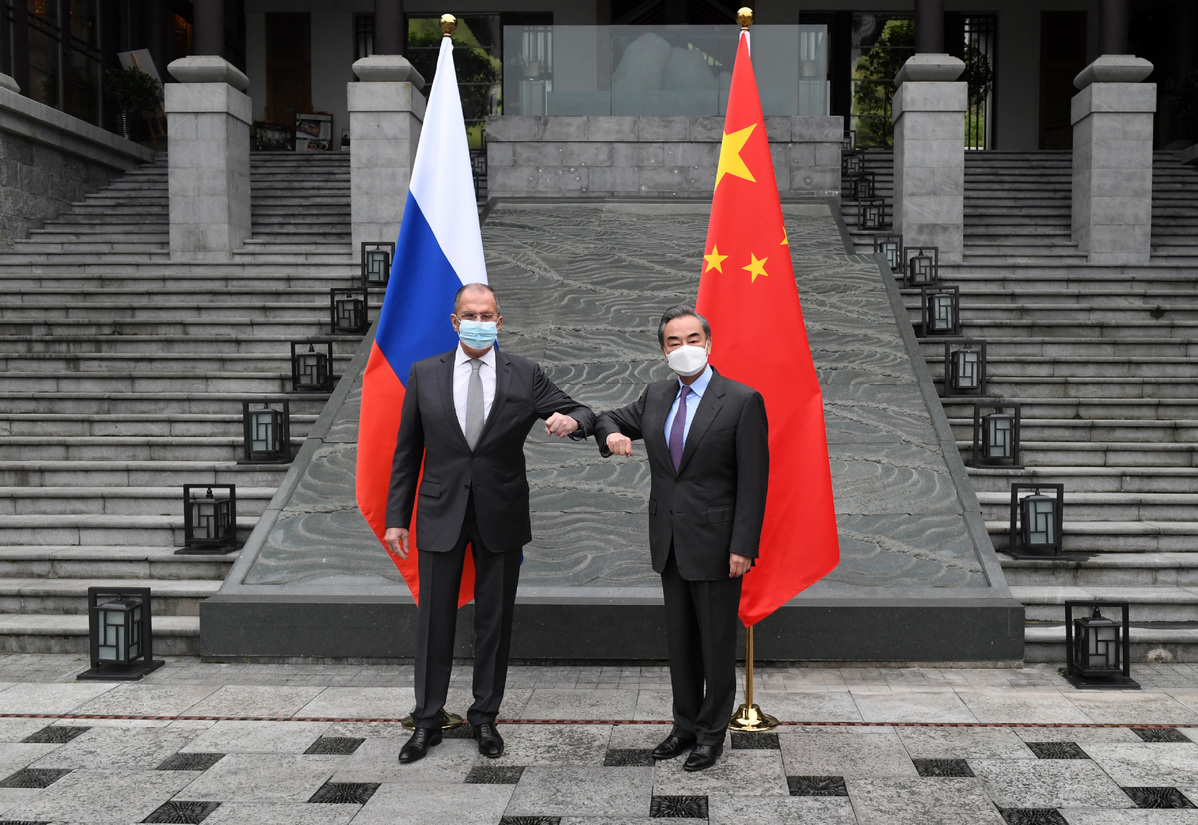
Chinese, Russian FMs critical of US
Chinese, Russian FMs critical of US
The foreign ministers of China and Russia have criticized the United States' negative impact on global peace and growth and urged the US to return to the Iran nuclear deal without conditions.
On Monday, at the first meeting of Russian Foreign Minister Sergey Lavrov's visit to China, State Councilor and Foreign Minister Wang Yi and the Russian diplomat had "strategic communication" and reached wide-ranging consensus over global and regional issues of common concern in Guilin, Guangxi Zhuang autonomous region, according to the Chinese Foreign Ministry.
The nations briefed each other regarding their respective bilateral ties with the US, and the two diplomats noted that the international community believes the US should reflect on the damage it has brought to world peace and development.
The US should stop its unilateralism and bullying behavior, stop interfering in other countries' domestic affairs and stop alignment that seeks confrontation between blocs, the two ministers said.
All countries should abide by the goals and principles of the United Nations Charter, pursue true multilateralism, devote themselves to the democratization of international relations and accept and promote the peaceful coexistence and common development of different social systems and development paths, they added.
On the Iran nuclear deal, Beijing and Moscow agreed that Washington should make its return to the landmark agreement with no strings attached at an early date. They encourage Teheran to fulfill the deal, and expect the agreement to further play its role in nuclear nonproliferation.
At the meeting on Monday, China and Russia also proposed to establish a regional security dialogue platform to help shape a new consensus for resolving security concerns among regional countries.
Both nations encouraged all dialogue mechanisms focused on the Afghanistan issue to join their efforts and speed up peace, reconciliation and reconstruction.
Speaking on the Myanmar situation, both nations voiced deep concern and stated support for efforts in the country to resolve the existing crisis within the framework of Myanmar's Constitution and laws. They called for preventing further bloodshed and conflict, and warned about external forces' attempts to take advantage of the crisis.
Lavrov, who is visiting China on Monday and Tuesday, is in Guilin. He and Wang will continue their talks on Tuesday.
As some media outlets speculated that the trip was deliberately scheduled to take place following the China-US dialogue in Anchorage, Alaska, last week, Foreign Ministry spokeswoman Hua Chunying dismissed such guessing on Monday, saying that the growth of China-Russia relations "doesn't target any specific country", and the ties are "frank and upright".
Yang Cheng, a professor at Shanghai International Studies University and executive president of Shanghai Academy of Global Governance and Area Studies, said Lavrov's China visit "shows the consistency of the tradition of Beijing and Moscow to update each other" on issues of concern.
The reinforced collaboration and two-way support between Beijing and Moscow are a display of the ever-increasing strategic mutual trust since the end of the Cold War and a natural response to Washington's persistence in viewing them as rivals, Yang noted.
A source: en.people.cn
A source: en.people.cn

